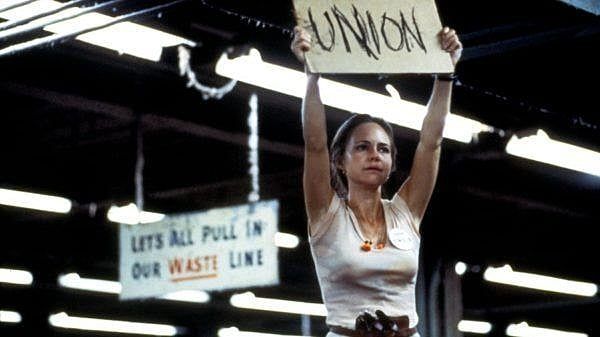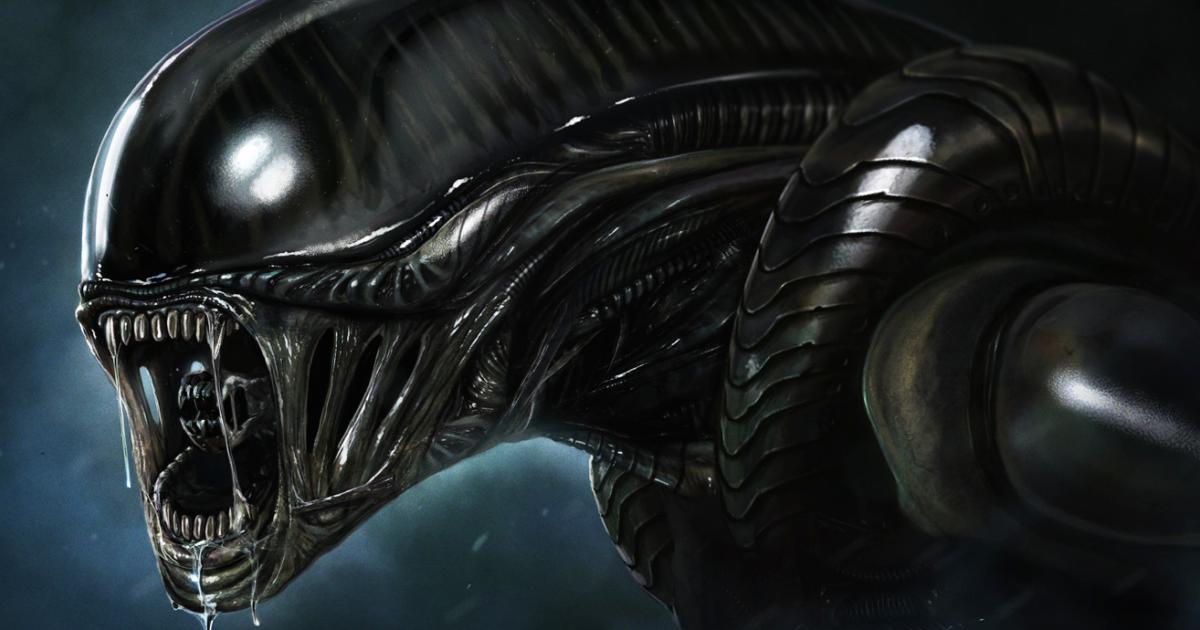
For as long as we’ve depicted narratives on film, we’ve been killing human beings in movies. This observation, of course, refers to the fine art of killing characters on screen, whether it’s a nameless mook gunned down or a title character levying a deathbed confessional surrounded by friends and family. Death, in all its forms, is an integral part of cinematic storytelling, acting as a powerful catalyst for change, a heartbreaking punctuation mark, or a searing commentary on the human condition.
Yet, not all cinematic deaths are created equal. This particular exploration steers clear of the merely “cool” or “unexpected” demises, opting instead for those profound moments that elicit genuine tears, gasps, or a deep sense of injustice from the audience. We are focusing on instances where the death itself, and the raw emotion it evokes, stands as the most memorable aspect, rather than just a reaction to a relatively mundane passing. We’ve set aside mass deaths, avoided characters who miraculously return, and concentrated exclusively on humans, former humans, and humanoid robots, ensuring our focus remains on the deeply relatable sorrow of human loss.
So, prepare yourself, for we are about to journey through a collection of cinema’s most gut-wrenching goodbyes. These are the moments that truly shatter us, forcing us to confront the fragility of life, the impact of sacrifice, and the often-unfair hand of fate. From the agonizing loss of a beloved hero to the brutal reality of innocent lives cut short, these six entries represent the pinnacle of cinematic heartbreak, moments woven indelibly into the fabric of our collective movie-watching experience.
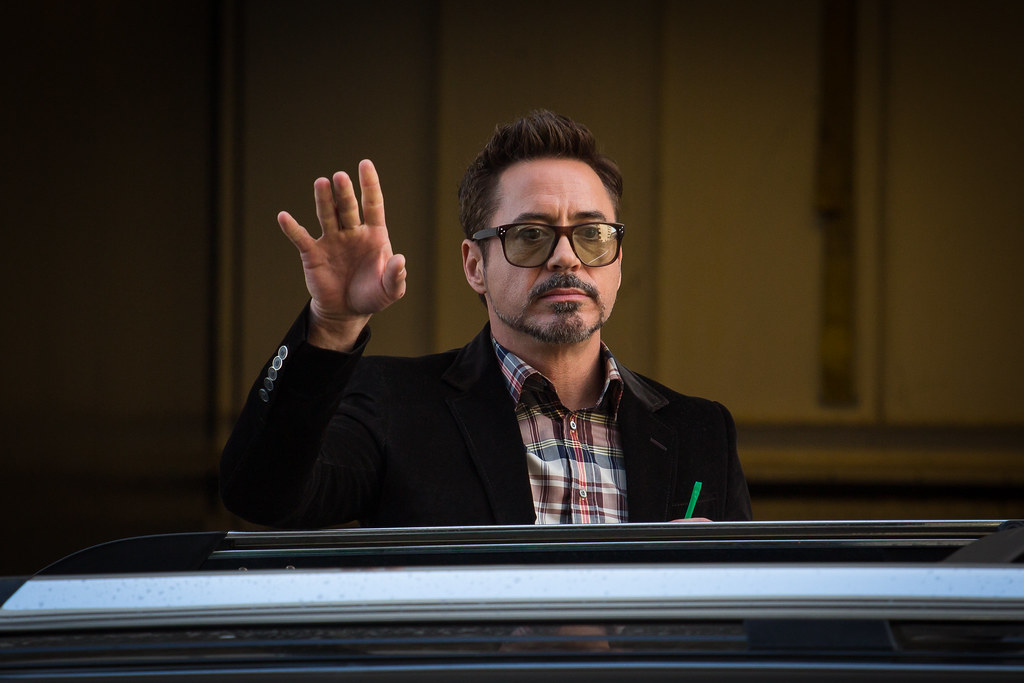
1. **Tony Stark – Avengers: Endgame**For many, Tony Stark, played with unparalleled charisma by Robert Downey Jr., wasn’t just a character; he was the very bedrock of a cinematic empire. As the context rightly states, “Over the first 22 MCU movies Tony Stark/Iron Man was the heart of the franchise.” It was his brilliant, albeit flawed, mind and his captivating journey from arrogant billionaire to selfless hero that ignited the entire Marvel Cinematic Universe, a franchise that has redefined modern blockbuster storytelling. His origin story in the original *Iron Man* truly kicked off what would become known as the Infinity Saga, laying the groundwork for epic narratives and deeply personal stakes.
From the moment Thanos snapped his fingers, casting a shadow over half of all life in the universe, a sense of impending doom settled over the MCU. Audiences, deeply invested in these characters, understood the gravity of the situation, and for a central figure like Tony, a grand, ultimate sacrifice always felt like a possibility. Indeed, “We all knew something like this was likely, but it didn’t make it any easier when it came.” That final snap, the last, arduous act of a man who had faced down gods and monsters, resonated with an almost unbearable emotional weight, leaving theaters filled with gasps and tears as the realization dawned.
His death wasn’t just the end of a character arc; it was the definitive conclusion of an era. The narrative suggests that “the Infinity Saga (the first three phases of the MCU) should have ended with Avengers: End Game and the death of Tony Stark.” This wasn’t merely a plot point, but a powerful statement on legacy, sacrifice, and the true cost of heroism. Tony Stark’s final act cemented his place as arguably the most impactful figure in modern blockbuster cinema, leaving an indelible mark on audiences and the landscape of popular culture.
Read more about: Cue the Rewind Button! These 10 Celebs Dropped the Most ICONIC Movie Quotes Ever
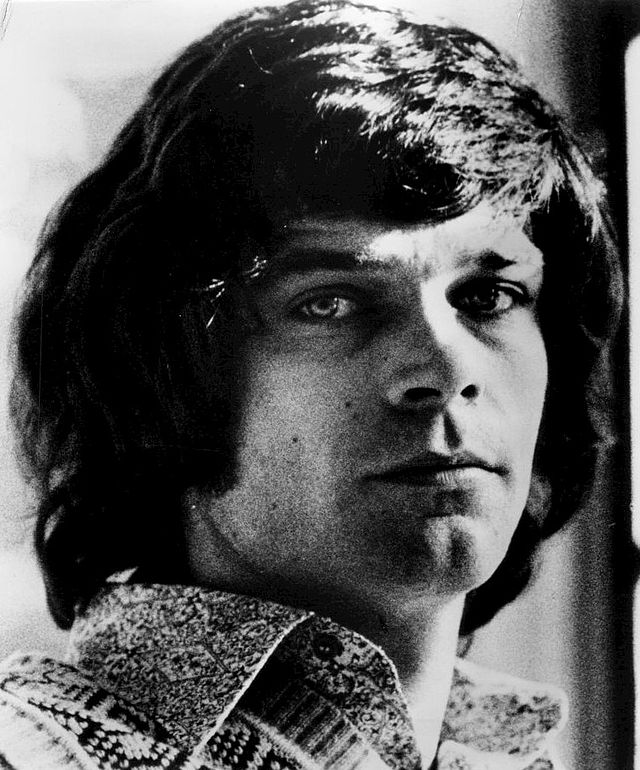
2. **Thomas J. – My Girl**Childhood, in cinema as in life, is often portrayed as a realm of innocence, discovery, and budding romance. *My Girl* initially seems to embrace this idyllic vision, presenting a sweet, if melancholic, narrative centered around Vada Sultenfuss and her best friend, Thomas J. Sennett. Their relationship, filled with bicycle rides, secret hideouts, and the tentative exploration of youthful feelings, draws the audience into a world that feels both tender and painfully real, promising a gentle coming-of-age story.
However, the film abruptly veers into a territory of profound tragedy, catching viewers entirely off guard. The context poignantly notes, “What seems like a sweet, innocent childhood romance comes to a crashing halt with the death of Macauley Culkin’s character Thomas.” His allergic reaction to bee stings, seemingly a minor childhood peril, escalates with terrifying speed, culminating in a death that is both shocking in its suddenness and devastating in its unfairness. This unexpected turn leaves audiences reeling, grappling with a loss that feels utterly senseless.
Indeed, the film confronts one of life’s most unbearable realities: “There is nothing harder in life than children dying long, long before their time.” The brutal impact of Thomas J.’s death is compounded by its unforeseen nature; “the fact that no one saw it coming in My Girl makes it doubly tough.” The raw, heartbreaking performance by Anna Chlumsky as Vada, particularly her iconic scene at his funeral, further magnifies the sorrow, solidifying Thomas J.’s demise as one of cinema’s most enduringly painful moments for anyone who has ever watched it.
Read more about: Pamela Anderson’s Astonishing Second Act: The Career Triumphs Unfolding After Her Big Screen Team-Up with Liam Neeson.

3. **Ricky – Boyz In the Hood**John Singleton’s seminal film *Boyz n the Hood* offers a unflinching look at life in South Central Los Angeles, a world where the cycle of poverty and violence often seems inescapable. Within this grim reality, the character of Ricky, portrayed by Morris Chestnut, emerges as a beacon of hope and a symbol of the aspirations shared by many in his community. He dreams of a future beyond the streets, particularly through a football scholarship, and the audience clings to the hope that he might break free from the predetermined paths of his friends.
The narrative skillfully contrasts Ricky’s potential with the divergent destinies of his closest companions. As the context highlights, “You always have the sense that Tre (Cuba Gooding, Jr.) is going to make it and you always sense Doughboy (Ice Cube) won’t. Ricky (Morris Chestnut) is in the middle and could go either way.” This precarious position fuels the audience’s investment in Ricky’s fate; he represents the agonizing possibility of escape, a testament to what could be achieved with talent and effort. His proximity to a brighter future makes his vulnerability all the more palpable.
Tragically, Ricky’s hopes are violently extinguished in a moment of senseless violence, just as his football scholarship seems within reach. “That’s what makes his death so heartbreaking. He’s so close to getting out, but just can’t escape the violence.” His death isn’t merely sad; it’s a profound statement on systemic injustice and the brutal reality that potential, talent, and good intentions are often insufficient against the pervasive forces of a harsh environment. Ricky’s demise is a punch to the gut, leaving a lasting impression of anger and sorrow over a life unfairly taken.
Read more about: From Tiny Talents to Tinseltown Titans: 14 Child Stars Who Conquered Hollywood as Adults

4. **Jenny – Forrest Gump***Forrest Gump* traces the extraordinary life of an ordinary man, but much of its emotional core revolves around his enduring, unconditional love for Jenny Curran. Jenny, however, leads a tumultuous existence, often making choices that bring her pain and lead her down dark paths. The context accurately observes that “Jenny (Robin Wright) never really treats Forrest (Tom Hanks) all that well in Forrest Gump. Most of the time, she kinda treats him like dirt.” This complex dynamic makes her a frustrating figure for viewers, yet Forrest’s unwavering devotion keeps hope alive for her eventual redemption.
Despite her often-cruel treatment of Forrest and her self-destructive tendencies, there’s always an underlying desire for her to find peace and happiness. When she finally returns to Forrest, marries him, and they begin to raise their son, it feels like a hard-won victory, a triumph of love and perseverance against a lifetime of struggle. “In the end, she does come around, and when she does, you feel the pain right along with Forrest,” as the film wisely notes. This period represents the closest Jenny comes to stability and true contentment, making her eventual decline due to an unspecified illness all the more poignant.
Her death, coming after so much hope and so much shared history with Forrest, strikes a particularly deep chord. It feels like the cruelest twist of fate, robbing her of the happiness she finally found and Forrest of the woman he loved more than anything. The film underlines this profound sadness by stating, “It’s even harder than watching his mother (Sally Field) go earlier in the movie.” Jenny’s passing is a powerful, sorrowful reminder that some wounds, and some losses, are simply too deep to heal, leaving both Forrest and the audience with a profound sense of melancholy.
Read more about: Beyond the Bell Bottoms: Unpacking the Fates of Hollywood’s Most Iconic 1970s Stars – Where Are They Now?

5. **John Coffey – The Green Mile**Frank Darabont’s 1999 classic, *The Green Mile*, introduces us to John Coffey, a towering man with the gentle spirit of a child and extraordinary, miraculous abilities. The deep injustice of his situation is immediately apparent: “In Frank Darabont’s 1999 classic The Green Mile, we know that Michael Clarke Duncan’s character John Coffey is locked up for a crime he didn’t commit and is facing a punishment not of his own making.” His imprisonment and death sentence for a horrific crime he could never have committed forms the agonizing central conflict of the film, pulling at the audience’s moral compass from the outset.
What makes Coffey’s impending execution so profoundly devastating is not just his wrongful conviction, but the sheer purity and goodness of his character. Michael Clarke Duncan’s portrayal imbued John with an almost ethereal innocence and compassion, capable of healing others but powerless to save himself from the system. “Not only do we feel for Coffey for his wrongful conviction, but because Duncan plays the role with such sweet sincerity that we can’t help but love the guy,” the film’s analysis notes. His quiet dignity and profound sadness over the world’s cruelty resonate deeply, making his fate increasingly unbearable to contemplate.
The walk down the titular “Green Mile” to the electric chair is an excruciating journey, not just for John, but for the audience. Knowing his innocence and witnessing his immense capacity for love and healing, his execution feels like a grotesque injustice perpetrated on screen. “His execution is like our own, it hurts way too much,” perfectly encapsulates the shared pain. John Coffey’s death transcends mere cinematic tragedy; it becomes a searing indictment of prejudice, the fallibility of justice, and the heartbreaking loss of a truly good soul, leaving an emotional scar on all who witness it.
Read more about: 16 Movie Deaths That Broke Our Hearts

6. **Neil – Dead Poets Society**The tragic death of Neil Perry in *Dead Poets Society* explores a particularly agonizing facet of human loss: suicide, especially when it involves a young life filled with potential. This deeply sensitive subject adds an “extra level of sorrow and frustration” to the narrative, as highlighted by the context. Neil, a bright and aspiring young man, struggles under the crushing weight of his domineering father’s expectations, who dictates every aspect of his life, from his studies to his extracurriculars, suffocating his true passions.
Neil’s burgeoning love for acting, nurtured by the inspirational teachings of Mr. Keating, represents his desperate yearning for self-expression and identity. However, his father’s unwavering opposition becomes an insurmountable barrier, leaving him feeling trapped and without agency. “Such is definitely the case with Neil (Robert Sean Leonard) in Dead Poets Society. It’s so unfair for everyone, and you even feel for his domineering father who drove him to it,” the analysis aptly points out. The film masterfully builds the tension of his internal conflict, making his eventual decision feel both shocking and tragically inevitable.
His suicide is not just a personal tragedy but a profound commentary on the pressures placed on young individuals and the devastating consequences of suppressing their dreams. Robert Sean Leonard’s nuanced performance as Neil ensures his struggle resonates deeply, even amidst the stellar work of other cast members. While “Robin Williams gives one his best performances in the movie,” it is truly “Leonard’s role as Neil that really sticks with you,” leaving an indelible mark of heartbreak and a stark reminder of the importance of understanding and empathy in fostering young minds.
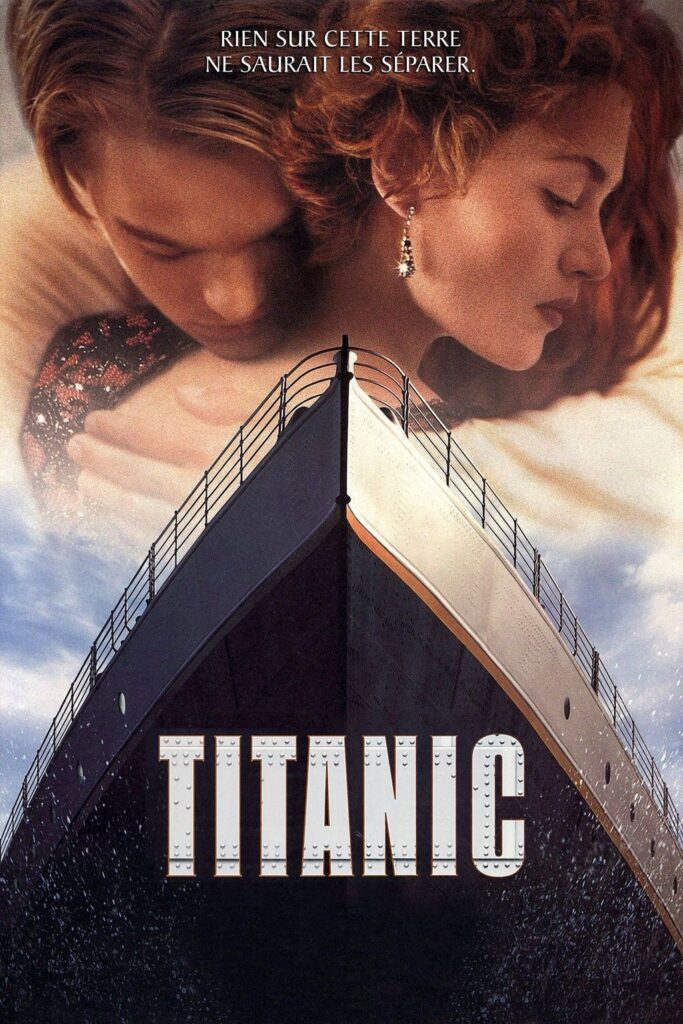
7. **Jack Dawson – Titanic**Few cinematic romances have seized the public imagination quite like that of Jack Dawson and Rose DeWitt Bukater in James Cameron’s epic *Titanic*. Leonardo DiCaprio, in a role that catapulted him to superstardom, imbued Jack with a roguish charm and an irresistible earnestness, making him the perfect foil for Kate Winslet’s yearning, upper-class Rose. Their whirlwind romance, blossoming amidst the opulence and rigid class distinctions of the ill-fated liner, was the beating heart of a film that was much more than just a historical disaster movie; it was a deeply personal love story set against an unimaginable tragedy.
As the “unsinkable” ship succumbs to its icy fate, the narrative shifts from budding romance to a desperate struggle for survival, plunging audiences into the chaotic, terrifying reality of the sinking. Jack and Rose’s frantic attempts to escape the rising waters and the collapsing vessel anchor the viewer’s emotional experience, creating a visceral sense of dread and helplessness. The biting cold of the North Atlantic becomes a palpable threat, a grim antagonist in its own right, steadily chipping away at the dwindling hope for rescue.
The climax of their story, stranded in the frigid waters, clinging to a makeshift raft (or a door, depending on your stance in the eternal debate), is nothing short of agonizing. As the context notes, “you can’t deny the impact of Jack’s death at the end.” Jack’s quiet, resolute sacrifice, urging Rose to survive and live a full life, is a moment of profound heartbreak. His blue lips and frozen grasp as he slips beneath the surface are seared into the collective memory of moviegoers, a devastating testament to love’s ultimate cost. DiCaprio’s performance, elevating him to “one of the biggest stars of all time,” ensures that Jack’s untimely demise “takes our breath away every time,” leaving an indelible mark on cinematic history and countless tear ducts.
Read more about: 16 Movie Deaths That Broke Our Hearts

8. **Goose – Top Gun***Top Gun* roared onto screens as the quintessential 80s blockbuster, a thrilling ode to aerial combat and daredevil bravado. Yet, amidst the adrenaline-fueled dogfights and iconic power ballads, it carved out a surprisingly raw emotional core through the unbreakable bond between Maverick (Tom Cruise) and his Radar Intercept Officer, Goose (Anthony Edwards). Their camaraderie, filled with playful banter, shared dreams, and an unwavering loyalty, was the audience’s entry point into the high-stakes world of naval aviation, making them instant favorites.
The film, however, delivers a gut-wrenching blow that few summer blockbusters dare to. “It’s not often that a big summer blockbuster hits you as hard in the guy as Top Gun does when Goose (Anthony Edwards) is killed in a training exercise,” the film’s analysis wisely observes. Goose’s death during a routine training exercise, the result of a catastrophic engine flameout and ejection gone wrong, is shockingly sudden and utterly unfair. It’s a stark, brutal reminder of the inherent dangers of their profession, tearing through the movie’s high-flying glamour with the force of a sudden crash, leaving both Maverick and the audience reeling in disbelief.
The aftermath of Goose’s death profoundly reshapes the narrative, thrusting Maverick into a vortex of guilt, grief, and self-doubt. His struggle to cope with the loss, compounded by the official inquiry, is palpable. The enduring power of this moment is further amplified by the quiet strength of Meg Ryan’s performance as Goose’s widow, Carole. Her poignant conversation with Maverick, assuring him that “Goose loved flying with him,” becomes a conduit for the audience’s own sorrow, turning on the “waterworks and let it all out” as the depth of their bond, and its tragic severance, fully hits home. Goose’s death isn’t just a plot device; it’s the emotional anchor that grounds *Top Gun*’s spectacular aerial ballet.
Read more about: Your Next 250,000-Mile Ride: Rating 7 Top Hatchbacks and Versatile Compacts for Ultimate Longevity
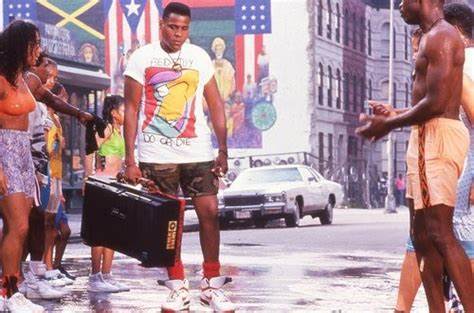
9. **Radio Raheem – Do The Right Thing**Spike Lee’s *Do The Right Thing* remains a searing, prescient masterpiece, a cinematic exploration of racial tension and simmering frustration in a Brooklyn neighborhood on the hottest day of the summer. Central to its vibrant tapestry of characters is Radio Raheem, portrayed by Bill Nunn, a towering figure whose constant companion is a booming boombox blaring Public Enemy’s “Fight the Power.” He’s not just a character; he’s a walking, breathing emblem of cultural identity and a profound, albeit sometimes aggressive, declaration of presence within his community. His silent, often brooding, demeanor belies a deep-seated philosophical core, expressed through his famous “love and hate” knuckle monologue, setting the stage for the film’s unavoidable confrontation.
The film meticulously builds a claustrophobic atmosphere of escalating tensions, from petty squabbles to overt racial slurs, all exacerbated by the oppressive heat. Radio Raheem’s presence, with his unyielding demand for respect and his blaring music, acts as a flashpoint, steadily drawing him into the central conflict. His insistence on his right to play his music loudly, however simple it may seem, becomes a symbolic stand against the perceived disrespect from Sal’s Pizzeria, leading to the devastating clash that serves as the film’s tragic climax.
Radio Raheem’s death is not merely sad; it’s an explosion of righteous fury and profound injustice, designed to “make audiences mad,” as the context clearly states. His brutal, chokehold death at the hands of the police, witnessed by a stunned crowd, ignites the powder keg of the neighborhood, culminating in the fiery destruction of Sal’s Pizzeria. This isn’t a passive moment of grief; it’s an active engagement with the visceral anger of a community pushed past its breaking point, highlighting the systemic violence and racial prejudice that so often leads to such shattering outcomes. It is “the anger part of grieving that hits the hardest here,” ensuring Radio Raheem’s tragic demise resonates far beyond the screen, cementing its legacy as a pivotal moment in American cinema.
Read more about: The Most Epic Movie Deaths That Truly Defined Cinema
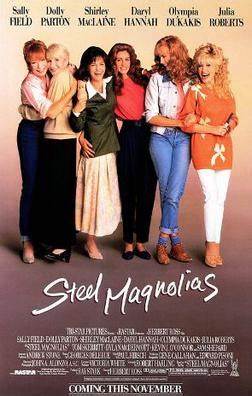
10. **Shelby – Steel Magnolias***Steel Magnolias* is a heartwarming, yet ultimately heartbreaking, ensemble drama that perfectly captures the unbreakable bonds of friendship and family in a small Louisiana town. At its luminous center is Shelby Eatenton Latcherie, portrayed by a radiant Julia Roberts in what the context rightly identifies as “Julia Robert’s first big break.” Shelby is a vibrant, optimistic young woman whose infectious smile and unwavering positive attitude quickly endear her to both the characters within the film and every single audience member watching. She is the epitome of life and joy, a bright spark whose presence lights up every scene she’s in, making her journey deeply personal for viewers.
Beneath Shelby’s effervescent exterior, however, lies a significant health challenge: Type 1 diabetes. This condition casts a subtle, yet ever-present, shadow over her life, particularly when she makes the courageous and deeply personal decision to have a child, despite the severe risks it poses to her own well-being. This choice, driven by a profound desire for motherhood and a refusal to let her illness dictate her dreams, showcases her remarkable strength and spirit. It’s a testament to her resilient character, and it builds an immense emotional investment in her fate, creating a delicate balance of hope and underlying concern.
Her eventual death, a direct consequence of her illness exacerbated by her pregnancy, is nothing short of excruciating. As the context states, “Her death, though part of life, is excruciating as a result.” It’s a stark, brutal reminder of life’s unfairness, especially for someone so full of life and potential. The film doesn’t shy away from the raw, overwhelming grief of her mother M’Lynn (Sally Field) and her circle of friends, turning her passing into a collective experience of profound sorrow. Shelby’s short but impactful life, and her tragic, premature end, solidify her character as an unforgettable symbol of resilience, love, and the enduring pain of loss.
Read more about: 15 Movies That Will Make You Sob Uncontrollably

11. **Guido – Life Is Beautiful**Roberto Benigni’s *Life Is Beautiful* is a remarkable, poignant film that masterfully weaves together humor and tragedy against one of history’s darkest backdrops. Benigni, as director, writer, and star, crafted the unforgettable character of Guido Orefice, a charming, quick-witted, and endlessly optimistic Jewish-Italian man. From the outset, Guido captivates audiences with his playful spirit and his boundless love for his wife Dora and their young son, Giosuè. He makes us “laugh throughout,” setting up a deeply personal connection that makes the eventual heartbreak all the more profound.
The narrative takes a harrowing turn when Guido and Giosuè are sent to a Nazi concentration camp. In an extraordinary act of paternal love and self-sacrifice, Guido meticulously creates an elaborate fantasy for his son, convincing him that their internment is an elaborate game with a grand prize for the winner. This incredible feat of imagination and resilience serves as a protective shield for Giosuè’s innocence, transforming the brutal reality of the camp into a challenging, yet ultimately harmless, competition. It’s a desperate, heroic performance designed to preserve his child’s spirit in the face of unspeakable evil, cementing the father-son bond at the core of the story.
The film’s emotional crescendo arrives with Guido’s death, a moment that “crushes our hearts” with its quiet, devastating finality. Just as the camp is being liberated, Guido is caught by a German soldier and led away to be executed. In his final moments, as he passes Giosuè in a hiding place, he maintains the charade, giving his son a comically exaggerated wink and a jaunty walk, reinforcing the “game” even as he faces certain death. This act of unwavering love, ensuring his son’s final memory of him is one of joy and courage rather than terror, leaves audiences “shattered,” as the context describes. Guido’s heroic sacrifice, an unparalleled blend of tragedy and triumph of spirit, is a powerful testament to the enduring human capacity for hope and love amidst the darkest atrocities.
Read more about: Lights, Camera, Oh No! The 14 Movie Musicals That Should Have Stayed on Stage (According to Fans & Critics)
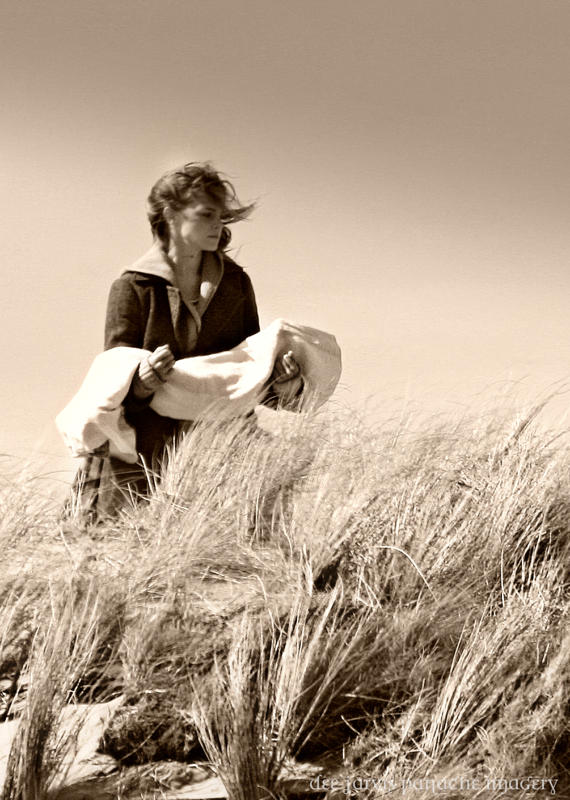
12. **Dobby – Harry Potter And The Deathly Hallows Part 1**Even in a saga brimming with beloved heroes and despicable villains, the diminutive house-elf Dobby carved out an unexpectedly massive space in the hearts of *Harry Potter* fans worldwide. Introduced as a mischievous, if well-meaning, obstacle in *Chamber of Secrets*, Dobby quickly transcended his initial role, becoming a symbol of loyalty, freedom, and pure, unadulterated goodness. His large, innocent eyes and distinctive speech patterns, coupled with his unwavering devotion to Harry, made him an instant “fan favorite,” whose quirky charm belied a profound courage.
Dobby’s journey is one of immense growth and self-determination, from a downtrodden servant to a fiercely independent and powerful ally. Throughout the series, he repeatedly demonstrates an almost suicidal bravery in coming to Harry’s aid, often at great personal risk. This selfless dedication culminates in *Harry Potter and the Deathly Hallows Part 1*, where he stages a daring rescue of Harry, Hermione, and Ron from Malfoy Manor, proving once again his unshakeable commitment to his friends and the greater good.
It is during this climactic escape that Dobby tragically meets his end, a victim of Bellatrix Lestrange’s cruel blade. His death, while perhaps that of a “side character,” is “one of the hardest to take to in the whole franchise,” as the context perfectly articulates. Dying in Harry’s arms on a secluded beach, his final words—”Such a beautiful place… to be with friends”—are a poignant testament to his innocent nature and the deep love he held. Watching him die is undeniably “heart-wrenching,” leaving an emotional void that resonates deeply with audiences, cementing Dobby’s legacy as one of the saga’s most pure-hearted and heroically tragic figures.
Read more about: Beyond the Silver Screen: Major Harry Potter Characters Book Fans Know That Moviegoers Missed
These indelible cinematic deaths, from the sudden shock of an accident to the profound sacrifice of a parent, underscore the unique power of film to tap into our deepest emotions. They are more than just plot points; they are cultural touchstones, moments that force us to confront the raw vulnerability of life and the often-unbearable weight of loss. Whether sparking tears, outrage, or quiet reflection, these narratives of finality remind us why we invest so deeply in the stories unfolding on screen, cementing their place not just in movie history, but in the very fabric of our shared emotional landscape. These are the goodbyes that truly stay with us, long after the credits roll.



